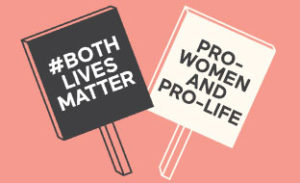Many people have at least a passing interest in what academics describe as alternate or counterfactual history. It’s like this; imagine what our world might be like if: the Reformation never happened; John F. Kennedy wasn’t assassinated; or the Cuban Missile Crisis had led to full scale war. In my own family we have speculated what things would be like if my grandfather, who being somewhat economical about his real age, enlisted with the 36th Ulster Division in 1915. If the truth hadn’t come out it is highly probable he would have been at the Battle of the Somme in 1916 with all those young men he had trained with. Would he have been one of thousands killed in July 1916? What would have been the ramifications for future generations of our family? Do we ever fully know the ripple effect our lives lived have on those closest to us, to our neighbours and work colleagues, to the wider world?
From a young age I have been fascinated by statistics, what they mean and the stories behind them. Some stats give a very hopeful and optimistic picture others a quite depressing, even horrific and grotesque one in what they mean, in the stories that lie behind them. Last year the BBC aired a programme called ‘Abortion On Trial’ to ‘recognise’ the 50th anniversary of the 1967 Abortion Act ! What struck me most was the absolutely tragic statistic that in Great Britain over the past 50 years nearly 9,000,000 ( unborn children had been aborted – around 98% of whom were perfectly healthy children. Worldwide the annual figure of children aborted is over an astonishing 40,000,000 (40 million). These figures are hard to take. It is even more depressing to watch some supposed ‘human rights’ organisations and politicians argue these figures , as a necessary consequence of ‘enforcing’ women’s health and human rights. They give no or little thought of the health and human rights of these innocent unborn human beings. They see no irony in the fact that this definition of rights for women costs women dear, depending as it does on the loss of rights for their own unborn children. They also ignore or deny the negative consequences of this supposed healthcare, experienced by many women .
I am sure most of you will have seen the riveting T.V. series “Who Do You Think You Are?” – it’s like a concise ‘this is the life of your ancestors’. Many people today are hooked on tracing their family tree but are often hampered by missing or incomplete records. We know instinctively that our law shapes our culture and Northern Ireland has concrete, verified statistics to back this up. Today, at a conservative figure, over 100,000 people are alive because Northern Ireland’s politicians had the foresight not to adopt Great Britain’s 1967 Abortion Act. That could mean some 8,000 people in my Mid and East Antrim District Council area.
Sadly however, there are politicians and organisations who want to “modernise”, to liberalise the abortion law in Northern Ireland; as they put it bring us out of the dark ages (do they mean before the electric light bulb?) into the 21st century. In fact there is nothing progressive about allowing widespread access to abortion for any reason. If we allow them to take us down this path then it won’t be “who do you think you are” but for those unborn children whose lives are ended it will be “so who do you think you might have been”?
Apart from the profound moral and ethical consequences of liberal, even decriminalised abortion, there are quite pragmatic reasons for supporting the reality that both lives matter. We can ill afford to destroy the talent of future generations – the entrepreneurs we need to generate new businesses and jobs – scientists and inventors who will make great discoveries – politicians and statesmen with vision and humility who can lead – talented artists, writers and musicians who will add those extra enriching dimensions to life – talented teachers and educators who will enable each new generation to reach its full potential – together they can bring hope, joy, a good and peaceful future to our Province and nation. Without them we will in so many dimensions be an infinitely poorer, depleted society.
With thanks from all of us at Both Lives Matter to our guest author, Alan Sheppard.
Alan is a retired Health Services senior manager who lives in Ballymena. He is married to Anne and enjoying a busy and active life as a grandfather.
The views and opinions expressed, are those of the author/s and do not necessarily reflect the official policy or position of Both Lives Matter.

